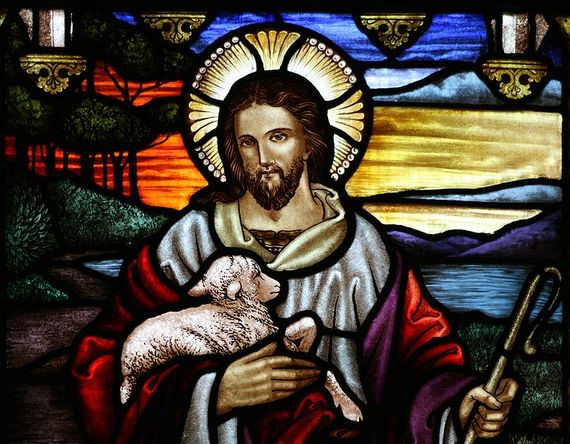
This week one billion people will remember the last days of Jesus' life -- his final meal with his friends on Maundy Thursday, his death on Good Friday and his resurrection on Easter. Christians disagree on the question of whether Jesus' life and teaching are more important, or whether it is his death that most sets him apart.
Summarizing the Christian message the apostle Paul writes, "Christ died for our sins in accordance with the scriptures" (1 Cor. 5:3). But making this connection between Jesus and the prophets of the Hebrew Scriptures still does not explain how salvation happens.
Before the year one thousand Christians did not write very much, or think much about how it is that Christ saves us. Before then they described Jesus as tricking Satan out of the Christians in his possession.
Anselm of Canterbury (1033-1109) one of the most brilliant theologians in the church took on this challenge in a short, hastily written treatise called "Why God Became Human ("Cur Deus Homo, 1098). Anselm's argument depends on a metaphor. He describes the relation between human beings and God as parallel to the relation between a feudal serf and the lord to whom he owes total obedience. Anselm goes on to write that through our sins we have offended God's honor. We cannot repay the debt ourselves. The rational order of the universe means that God cannot simply look the other way. The only solution for this double bind is for God's son to suffer in our place.
To be clear, for a thousand years in the western church and for two thousand years in the Eastern church, Christians did not use this explanation. I believe on this point that Anselm and those who follow him are mistaken. Anselm's account shifts the focus of Jesus' ministry from what he did, how he healed and taught, to his suffering.
You can see this change in artistic depictions of Jesus. Before the end of the thirteenth century Christ was usually depicted as the peaceful Good Shepherd or as the divine majesty. But from this point his image began to appear more frequently with his body broken on the cross and his face distorted in pain.
Holy Week should not be interpreted to mean that we are responsible for the death of Christ, or that God's honor would be offended if he simply forgave our sins, or that the point of Jesus' life was his suffering and death, or that this death magically erases the consequences of what we actually have done.
If Holy Week does not mean this, what does it mean? It means two things. First, you cannot ignore or get around suffering. The other day a friend told me how much her mother hated funerals. She dealt with death by simply not thinking about it. For Christians this is not a serious option. Unlike my atheist friends who feel so offended by suffering that they cannot believe in God, we experience God as our hope in the face of our suffering. Second the events of this week mean that we have a responsibility for alleviating suffering in the world, to be agents of healing and reconciliation.
Paul also writes, "Let the same mind be in you that was in Christ Jesus, who... emptied himself, taking the form of a slave, being born in human likeness" (Philippians 3). Christians need to empty ourselves of ourselves in the way that Jesus does. We need to be like our teacher in his humility.
Humility does not mean saying that you are bad at tennis when you are really pretty good at it. Humility means seeing your self in the way that others see you. Humility means getting out of our own way, and doing what love requires of us.
Last week I met a woman named Tracy. Twelve years ago on the week before her wedding date her fiancé had a massive stroke that left him completely paralyzed except for one hand. She cancelled the big wedding. They exchanged vows in the Intensive Care Unit instead. She had made a promise. Despite being universally discouraged by all of her friends, she understood that breaking the promise would not leave her any happier. There have been hard times as there are in any marriage, but the two just celebrated their twelfth anniversary.
The word vocation is derived from the Latin word vocare. It means calling. It is the work God asks us to do. Holy Week is when we celebrate Jesus' unique calling as teacher, healer and God's son. It is a time when we ask ourselves again what God is calling us to do.